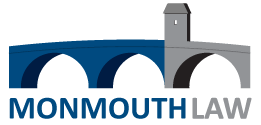Protecting the Family Home
Protecting the Family Home
It is natural to want to protect the family home and pass on as much of one’s assets as possible to your children. However, this is not always a straightforward matter. Care fees, taxation, and family rifts, are often the main complicating factors, but there can be others, this is where trusts can be invaluable.
What is a Trust?
Trusts have been used for centuries to protect and pass on family assets. A trust comes into existence when cash/investments and/or property are transferred to the ownership of trustees with instructions as to how they are to deal with the income and capital of those assets. A trust can be established during one’s lifetime by a deed, or in a will, to come into effect on death. The trust document [deed] sets out those responsible for looking after the assets [the trustees], those who can benefit [the beneficiaries], and any conditions to which the trustees must adhere [such as beneficiaries having to wait until they are 25 before being absolutely entitled to their share]. The assets put into trust constitute the trust fund.
The trust can be drafted in such a way as to give your trustees the discretion as to which beneficiaries to benefit, by how much, and when. Divorce, bankruptcy, and tax, can all wreak havoc with your wealth: the trust can mitigate or avoid such problems.
What sort of trusts are there?
Essentially there are two: fixed interest and discretionary trusts. With the former, the shares of the beneficiaries are fixed from the outset e.g. a percentage of the trust fund, or the right to live in a property. A partner can be given the right to live in your property after your death, with the asset passing in its entirety on your death to children from a previous relationship, for example.
Discretionary trusts are ideal for maximum flexibility, to accommodate changing family circumstances and needs. With such a trust, no one is entitled to anything: the trustees decide who, from a class of beneficiaries, should benefit, by how much, and when. The class of beneficiaries could be your children and grandchildren. The most you should put in is £325,000, as a greater amount would lead to adverse tax consequences.
Who can be trustees?
Beneficiaries can be trustees, as well as family members and friends. If there is a chance that there may be disagreement between the trustees of a discretionary trust, it might be best to appoint professional trustees, such as a lawyer.
01
What We Do
The trust document are specifically designed to protect your assets for you during your lifetime. They give you the peace of mind that your estate can be passed on securely and intact to your spouse, your children and their bloodline, or other named beneficiaries, after your death, protecting the family home.
02
Our Approach
Monmouth Law Chambers can assess your current circumstances and recommend the products that will provide the correct protection for you, your family and your assets.
Our Mission
A change in the rules in how barristers and solicitors can work now permits members of the public to instruct a barrister directly, thus avoiding the cost of paying for two lawyers. Monmouth Law Chambers mission is to always remain “At the heart of the Community”.
Contact Us
07581 434240
info@monmouthlawshire.co.uk

Office Hours
Mon-Fri: 9.30am - 4.30pm
Sat-Sun: Closed
Office Hours
Mon-Fri: 9.30am - 4.30pm
Sat-Sun: Closed
Regulated by the Bar Standards Board. Membership number 21301